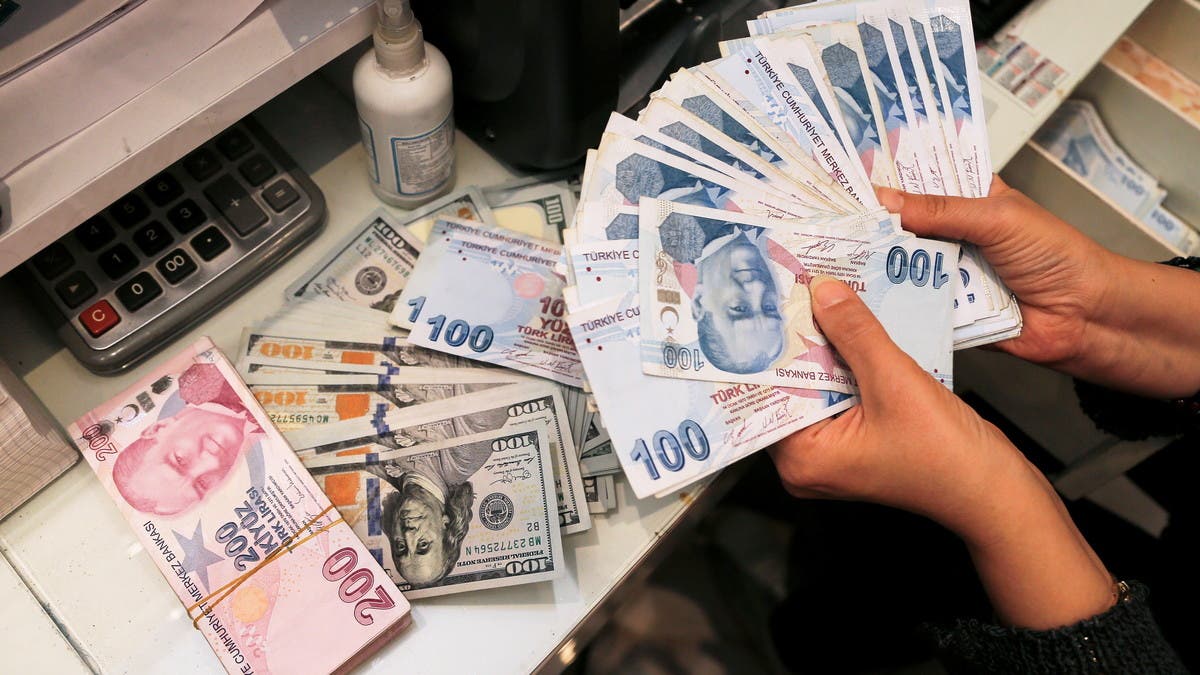Turkey’s lira slid beyond 16.35 against the dollar on Wednesday to its weakest level since the depths of a December crisis, as analysts questioned authorities’ ability to continue steadying it without new sources of foreign currency.
The lira has weakened 9 percent this month and 19 percent this year, despite months of costly interventions in which the central bank has sold dollars to soften the blow and the state has backed an FX-protected deposit scheme.
For the latest headlines, follow our Google News channel online or via the app.
The currency dipped as far as 16.3515 and stood at 16.3300 at 1257 GMT, after a 1 percent fall against the greenback.
On Dec. 20, the emerging market currency hit a record low of 18.4 after a series of unorthodox interest rate cuts which pushed it down 44 percent on the year as a whole. In response, inflation has since leapt to 70 percent in April.
The lira held mostly steady early this year due to the government’s scheme, known as KKM, that protects some depositors against lira depreciation. The central bank has also sought to meet the market’s foreign-currency needs since the December crisis.
But those efforts to keep the currency steady have taken their toll on the Central Bank of the Republic of Turkey’s (CBRT) already depleted reserves, according to bankers.
“We estimate that the CBRT’s FX sales exceeded $30 billion in the January-April period,” said economist Haluk Burumcekci, adding that balance sheet data showed sales were more intense in May.
Adjusted for swaps, the bank’s net international reserves fell by another $7.7 billion after the first 20 days of May, he said.
Data last Friday showed the central bank’s net international reserves dropped some $3.5 billion to $11.53 billion in the week to May 13. Bankers calculate that they fell to $10 billion or less in the following week.
Economists say rate hikes could help relieve both the lira and reserves. But President Tayyip Erdogan’s opposition to policy tightening has left few expecting a turnaround any time soon, including when the bank meets on Thursday.
Robin Brooks, chief international economist at the Institute of International Finance, said “intense depreciation pressures” are rising. “We think risk of a severe overshoot – much like in 2021 – is high, given rising global recession risk and the big credit expansion in Turkey,” he said on Twitter.
The war in Ukraine began harming the lira in March as Western sanctions on Russia sent energy prices soaring, pushing up Turkey’s already hefty import bill and fueling inflation.
On Tuesday, the cost of insuring Turkey’s debt against default shot to its highest since the 2008 global financial crisis. IHS Markit data showed 5-year credit default swaps (CDS) had risen to 730 basis points from 704 points.
Read more:
Israel and Turkey opening new chapter in relations: Israel FM
Turkish minister aims to boost Palestinian economy in rare West Bank trip
Turkey passes law exempting converted lira deposits from corporate tax

 World2 years ago
World2 years ago
 World2 years ago
World2 years ago
 Entertainment7 years ago
Entertainment7 years ago
 World7 years ago
World7 years ago
 Entertainment7 years ago
Entertainment7 years ago






